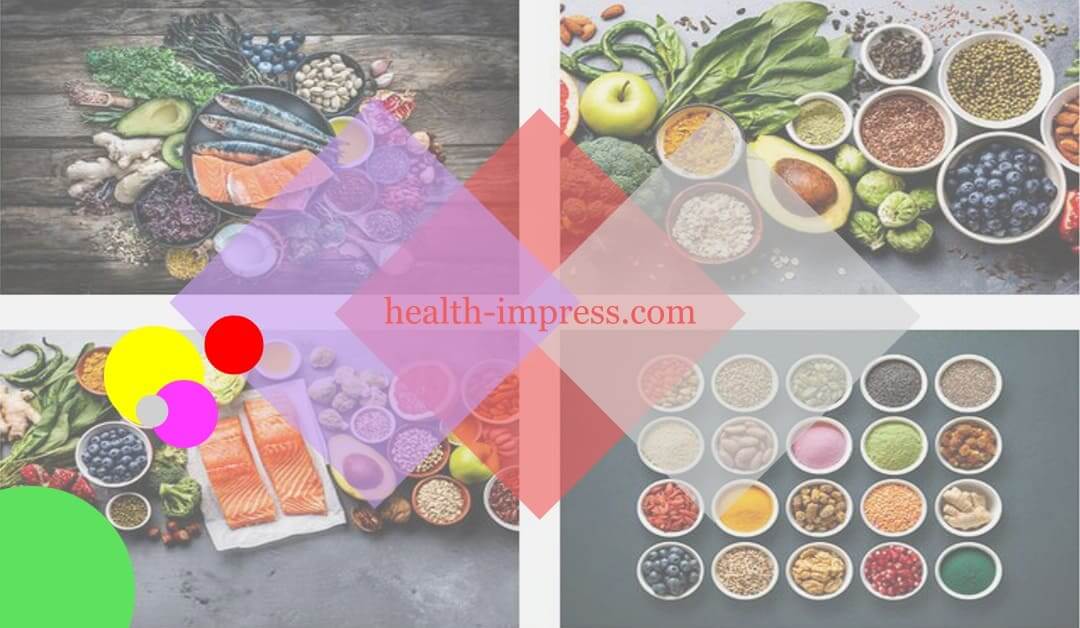Diets & Weight Loss
Why and how to Increase Antioxidants in Your Diet
With the holiday season ahead of us, it’s good to make decisions, most of which are centered on dieting, hence the need to increase antioxidants in your diet. There are numerous reasons to consider eating healthier, but not all of them are related to weight loss. By lowering the number of free radicals in your cells, your food choices can help reduce stress in your body.
While typical holiday dinners are high in salt, fat, and sugar, many items we consume on a regular basis, such as sweets and drinks, can also cause blood glucose and insulin levels to jump. They also, unfortunately, have the potential to increase the number of free radicals, or molecules with unattached electrons, in the body, which can cause major cellular damage.
How to increase antioxidants in your diet
Antioxidants vs. free radicals: A health check
We hear a lot about antioxidants, and we’re told to eat foods high in them. But what are they, and why do we require them? I’ll explain the oxidative process and why it’s critical to control it. During the oxidative process, free radicals – cellular bad guys – are created. Antioxidants help to mitigate some of the harm.
shuffle of electrons
A substance that has been “oxidized” has lost electrons to another substance. In contrast, a material is said to be “reduced” when it gains electrons from another substance. Oxidizing agents are also known as electron acceptors because they extract electrons from a substance, causing them to lose electrons or become oxidized. Electrons are retained by oxidizing agents.
If the unpaired electrons do not bind to other molecules, the oxidizing agents that have received electrons become free radicals. These free radicals disrupt our cellular metabolism and potentially disrupt our DNA, hence the need to increase antioxidants in your diet.
Free radical generation and nutrient metabolism to increase antioxidants in your diet
Our mitochondria, which function in our cells like small factories, are in charge of burning fuel from food and making energy in each of our cells through a process known as oxidative phosphorylation. This metabolic pathway is a cellular chain reaction that consists of a succession of oxidation and reduction processes in which atoms try to give or receive enough electrons to have a complete “shell.” Most atoms have an equal number of protons and electrons, but this leaves the various “shells” of electrons unfilled, leaving them exposed to scavenging the body for electrons to couple with.
Don’t bother about antioxidant supplements; just eat more vegetables to increase antioxidants in your diet
When an electron breaks from a molecule involved in oxidation and reduction, it almost instantly reattaches to another. When they don’t, though, free radicals arise. This oxidative mechanism produces chemically reactive molecules containing oxygen under normal conditions. This, in turn, can result in the formation of free radical molecules, which are unstable in large concentrations.
Free radicals aren’t all terrible. The process of converting nutrients from our meals into chemical energy requires the creation of free radicals.
However, the concentration of free radicals, whether atoms, ions, or molecules, is hazardous and can have serious effects on human health. Because of their capacity to oxidize cells, these unstable chemicals are harmful to the healthy structure and function of cells throughout the body, a condition known as oxidative stress.
Free radicals harm the body’s cells’ growth, development, and survival. When present in overwhelming levels, their reactive nature allows them to participate in unwanted side reactions that cause cellular damage and eventually injury.
Why are most food labels incorrect regarding calories?
They have a direct impact on cell membranes and DNA. This causes cell mutation and erroneous cell growth, implying that free radicals are linked to both the development of cancer and the advancement of aging. Free radicals are regularly linked to age-related health issues such as blocked arteries, diabetes, and even wrinkle production.
Holiday foods high in antioxidants
Overeating raises the creation of free radicals even more. As we consume more food, our mitochondria produce more activated oxygen than usual during energy consumption, resulting in increased amounts of free radicals. Furthermore, the risk of oxidative stress increases when specific types of foods are ingested, and the degree of danger can be influenced by how they are prepared or cooked.
You may prevent free radical sources by planning ahead of time and adding healthy foods into your daily life, not just during the holidays, but all year round. Keep in mind that free radical content is high in nutrient-poor and antioxidant-deficient diets. To increase antioxidants in your diet, do the following:
- Limit your intake of processed meats such as sausages, bacon, and salami to. They contain preservatives, which cause free radicals to form.
- Never reuse cooking fats or oils. When fats and oils are heated during cooking, they oxidize, releasing free radicals into our meals.
- Avoid foods with a high glycemic index, as well as those heavy in refined carbohydrates and sweets. They have a higher proclivity to produce free radicals.
- Consume meals high in antioxidants, which are substances that suppress molecular oxidation by neutralizing free radicals, preventing them from causing cellular harm. Antioxidants can be found in plants in the form of vitamins A, C, and E, as well as selenium and certain phytonutrients and polyphenols. Cranberries are high in them!
- Instead of rich pies and cakes, try fruit for dessert. Apples, cantaloupe, cherries, grapefruit, kiwi, papaya, red grapes, blackberries, raspberries, and strawberries are all delicious on their own or combined to make delectable fruit salads.
- Consume red meat in moderation. Because of its high iron content, it is especially prone to oxidation.
- Consume alcohol in moderation. Alcoholic beverages are not only high in calories, but they can also cause free radicals in the body. Limit your alcohol consumption to one or two drinks each day.
- Stock up on nuts, which are always plentiful over the holidays, as well as other vitamin E-rich foods like sweet potatoes. Flavonoids, which are plant metabolites, also have antioxidant properties. Onions, eggplant, lettuce, turnip greens, endives, pears, red wine, parsley, citrus fruits, berries, cherries, plums, legumes, soybeans, milk, cheese, tofu, and miso are examples of antioxidant-rich flavonoids.
- Eat foods high in -carotene, lycopene, and lutein, such as broccoli blossoms, alfalfa sprouts, Brussels sprouts, carrots, collard greens, corn, mango, and tomatoes. These foods can be added to a variety of side dishes, including vegetable medleys, casseroles, and salads.
- Experiment with herbal therapy in your cuisine: Many spices not only improve the flavor of our festive turkeys and hams but also help to minimize oxidative stress. Ginger, grape seed extract, ginkgo, rosemary, and turmeric are among them.
- Consume antioxidant superfoods, which contain a high concentration of more than one vitamin. Prunes, plums, raisins, blueberries, cranberries, figs, oranges, pomegranates, delicious red bell peppers, beets, kale, spinach, and dark chocolate are among them.
- Set aside some time for tea. When the evening is done, you may relax with a quiet and pleasant cup of warm green tea, knowing that the polyphenols in your brew also fight oxidation.
To conclude, we now realize the need to increase antioxidants in your diet for healthy living.
Take care!


